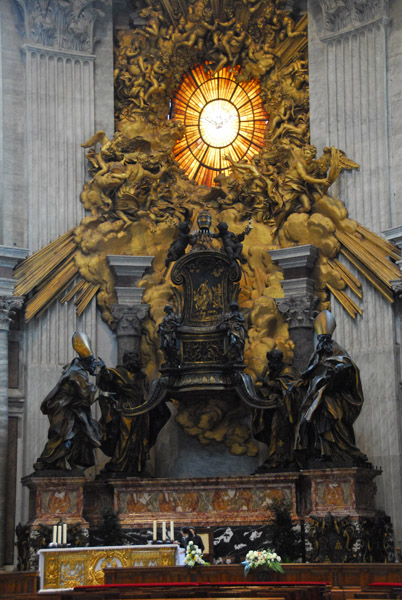 Today is the feast of the Chair of Peter, celebrating the enduring office of the Papacy that Jesus entrusted to the Church in Matthew 16, John 21, and elsewhere. Non-Catholics often question the Church’s interpretation of these Scriptures, but there’s no denying the reality of papal primacy in how the early Church actually operated in history. The praxis of the early Church from the beginning is eloquent testimony that the Catholic interpretation of the Petrine ministry is the original one.
Today is the feast of the Chair of Peter, celebrating the enduring office of the Papacy that Jesus entrusted to the Church in Matthew 16, John 21, and elsewhere. Non-Catholics often question the Church’s interpretation of these Scriptures, but there’s no denying the reality of papal primacy in how the early Church actually operated in history. The praxis of the early Church from the beginning is eloquent testimony that the Catholic interpretation of the Petrine ministry is the original one.
A great example of this is an incident that arose during the reign of Pope Victor I, circa 198 AD. Some bishops in the Eastern wing of the Catholic Church had been celebrating Easter on a different date than what had been the norm in the West. Pope Victor threatened to excommunicate these prelates from Asia Minor, unless they fell back in line with the Roman celebration of Easter.
Some questioned aspects of Pope Victor’s decision – the great Saint Irenaeus, author of the apologetic masterwork, Against Heresies, for one. But no one questioned his authority to do such a thing – not even the Eastern bishops themselves. The fact that they didn’t is damaging to the non-Catholic view that the Church’s bishops have no leader among themselves. Just as surely as Peter was the captain of the Apostolic band, his successor, the Pope, has always been the leader of his fellow bishops.
As Irenaeus himself so eloquently put it,
Since, however, it would be very tedious in such a volume as this, to reckon up the successions (the apostolic succession of bishops) of all the Churches, we do put to confusion all those who, in whatever manner, whether by an evil self-pleasing, by vainglory, or by blindness and perverse opinion, assemble in unauthorized meetings; (we do this) by indicating that tradition derived from the apostles, of the very great, the very ancient, and universally known Church founded and organized at Rome by the two most glorious apostles, Peter and Paul; as also (by indicating) the faith preached to men, which comes down to our time by means of the successions of the bishops.
For it is a matter of necessity that every Church should agree with this Church (Rome) on account of its preeminent authority, that is, the faithful everywhere…
– Against Heresies, 3, 3, 2

